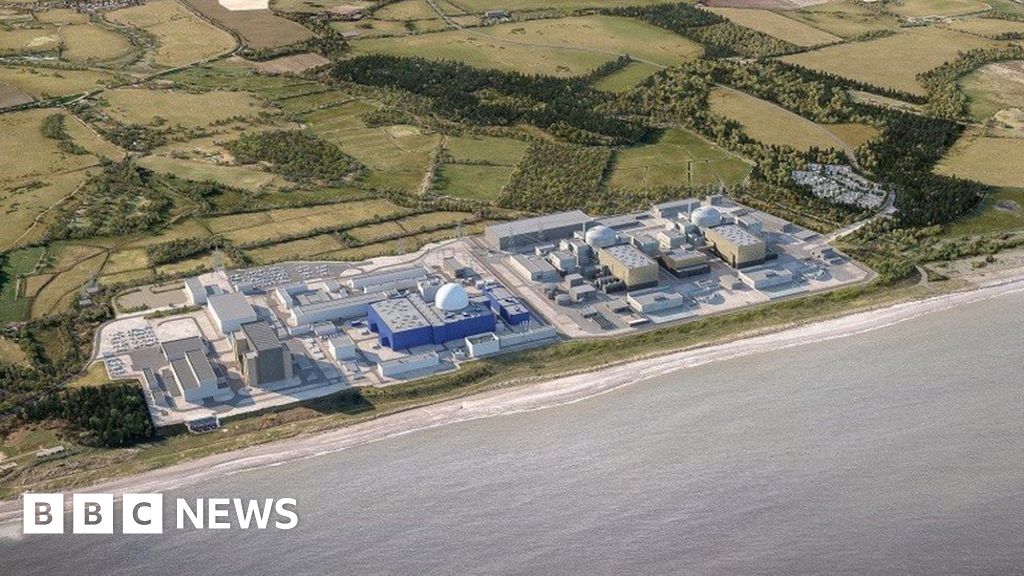ARTICLE AD BOX
 Image source, Getty Images
Image source, Getty Images
By Lucy Hooker & Dharshini David
Business reporter and economics correspondent, BBC News
The government will reverse "almost all" of the tax cuts announced in last month's mini-budget in an emergency move aimed at calming investors.
New chancellor Jeremy Hunt said the strategy, which includes keeping income tax at current levels, would bring in £32bn.
The move comes after economists warned the original plans would leave a £60bn black hole in the public finances.
Mr Hunt said his priority was to restore "economic stability".
Last month Mr Hunt's predecessor, Kwasi Kwarteng announced huge subsidies to energy prices and sweeping unfunded tax cuts, prompting turmoil in the financial markets. Investors were alarmed that there was no independent assessment of the impact on the economy and no explanation of how the package would be paid for.
Mr Hunt said he would be shelving almost all of Mr Kwarteng's tax changes and would look again at the way energy bills were being subsidised across the board.
"At a time when markets are rightly demanding commitments to sustainable public finances, it is not right to borrow to fund this tax cut," added Mr Hunt, referring to Mrs Kwarteng's plan to bring down the basic rate of income tax by 1p.
The pound rose and government borrowing costs fell after Mr Hunt's announcement.
What was the black hole in UK finances?
The Institute for Fiscal Studies (IFS), an economics think tank, had warned that the government faced having to make "big and painful" spending cuts to put the country's finances on a sustainable path.
It calculated the government would have to spend £60bn a year less by 2026-27, even taking into account an earlier u-turn over the top rate of income tax.
Governments do borrow from investors to fund spending in difficult times. But a shortfall in the government budget, often dubbed a "black hole", can make investors nervous if it is not clear that it is a temporary measure.
Rising borrowing also comes with a price tag attached - interest bills that rise as inflation does too. For this reason, governments usually avoid borrowing to cut taxes or spend more at times when inflation is high.
Why did Hunt have to act?
Immediately after Mr Kwarteng's mini-budget in September, rates of interest for government borrowing shot up to worrying levels as the UK was deemed a higher risk to lend to.
Between the soaring cost of living and higher borrowing rates, the government faced paying interest of over £100bn on existing debt next financial year - twice what was expected just a few months ago.
That's equivalent to over a fifth of departments' budgets for day-to-day provision of public services - it's money that could be used for schools or hospitals in theory instead.
It also pushed up borrowing costs for businesses and individuals, including for mortgages. And it sent financial markets into a tailspin as the value of government bonds plummeted, forcing the Bank of England to step in to protect pension funds.
What is Mr Hunt's plan?
Mr Hunt's new strategy will mean more money coming into the Treasury's coffers, reducing the need for severe cuts to spending on services such as the NHS, education and defence.
The government's stated aim is to not be spending any more than it is receiving in tax receipts by the 2026-27 tax year, in order to keep the overall burden of debt at current levels.
The chancellor said savings of £32bn would be made by 2026-27 by:
- Keeping plans to raise corporation tax to 25% (raising £18.7bn)
- Keeping the basic rate of income tax at 20p, rather than cutting it to 19p next year (£5.9bn)
- Keeping a planned increase to the tax on dividends (£0.9bn)
- Shelving changes to IR35 rules for freelance workers (£2bn)
- Cancelling a plan to offer tax-free shopping to tourists (£2.1bn)
- Allowing alcohol duties to rise instead of being frozen (£0.6bn)But it still leaves a £28bn shortfall, if the government is to meet its commitment to balance the books over the next three years.
Mr Hunt also announced that support for every household's energy bills, which will cost an estimated £60bn over this winter, will remain in place until April, but after that the scheme will be reviewed to see if cost savings can be made.
Mr Hunt also said he was forming an Economic Advisory Council to provide him with "independent expert advice" as he tries to rebuild investor confidence.
Will Hunt's plan work?
Experts said his announcements still leave a £28bn shortfall, if the government is to meet its commitment to balance the books over the next three years.
Mr Hunt is expected to set out how this gap will be bridged in a fiscal statement on 31 October.
"Mr Hunt will still have to make some scary decisions on tax and spend this Halloween [on 31 October]. And it remains hard to see where significant spending cuts could come from," said IFS director Paul Johnson.
However, it said that having undone the big package of tax cuts Mr Hunt may be able to delay some big decisions on public spending.
So far, the chancellor's snap announcements on Monday have helped to calm markets. The pound rose and government borrowing costs fell on Monday, as investors welcomed the reversal of most of the mini-budget tax measures.
The news also saw the interest rate - or yield - on UK government bonds fall, making government borrowing less expensive.
Mr Hunt stressed that it was the government's responsibility to "do what's necessary for economic stability".
"Governments cannot eliminate volatility in markets, but they can play their part, and we will do so because instability affects the prices of things in shops, the cost of mortgages and the values of pensions," he said.

 2 years ago
46
2 years ago
46








 English (US) ·
English (US) ·